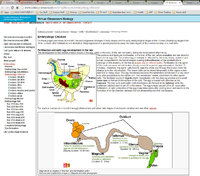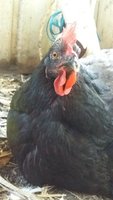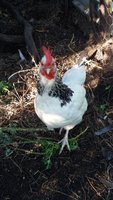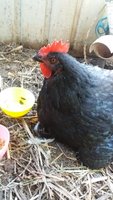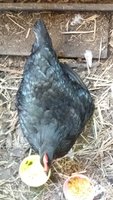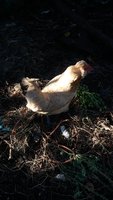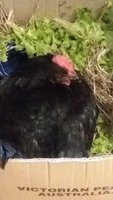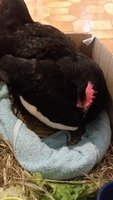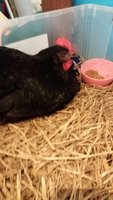Indra
Member
- Joined
- Feb 28, 2018
- Messages
- 16
- Climate
- Sub-Tropical
Hi all,
Thanks for having me here. I have a motley crew of three domestic hens each around 3 years old. They have all been healthy and producing a lot of eggs. Eight days ago I noticed one hen did not run out for her afternoon scraps. I found her with a completely lame leg after seeimg fine earlier that day. I thought it might be an injury so, as advised on one blog, gave her a small amount of asprin. She perked up enough to fly out of the large box in which I isolated her. I returned her to the coop and tended to her in a low laying box. Overnight she got herself up to her preferred laying box but seems to be losing her strength slowly. There is no excessive heat to suggest infection. All three were vaccinated as chicks. She is still perky with lively eyes, normal looking comb, strong wings, a great appetite ~ just not mobile. Three days ago I gave all three chooks Avitrol Plus to be sure, even though there was no evidence of infestation/watery poo, etc (I normally just use garlic, ACV, DE). The other two hens are just fine. Since then I have noticed the sick hen has had watery poo but there has been no improvement in her health so far. I haven't noticed any dead worms. I am out of ideas and have exhausted the suggestions provided on another forum. I am very sad to see her uncomfortable. Can anyone offer further advice?
Thank you...
Indra
Thanks for having me here. I have a motley crew of three domestic hens each around 3 years old. They have all been healthy and producing a lot of eggs. Eight days ago I noticed one hen did not run out for her afternoon scraps. I found her with a completely lame leg after seeimg fine earlier that day. I thought it might be an injury so, as advised on one blog, gave her a small amount of asprin. She perked up enough to fly out of the large box in which I isolated her. I returned her to the coop and tended to her in a low laying box. Overnight she got herself up to her preferred laying box but seems to be losing her strength slowly. There is no excessive heat to suggest infection. All three were vaccinated as chicks. She is still perky with lively eyes, normal looking comb, strong wings, a great appetite ~ just not mobile. Three days ago I gave all three chooks Avitrol Plus to be sure, even though there was no evidence of infestation/watery poo, etc (I normally just use garlic, ACV, DE). The other two hens are just fine. Since then I have noticed the sick hen has had watery poo but there has been no improvement in her health so far. I haven't noticed any dead worms. I am out of ideas and have exhausted the suggestions provided on another forum. I am very sad to see her uncomfortable. Can anyone offer further advice?
Thank you...
Indra

